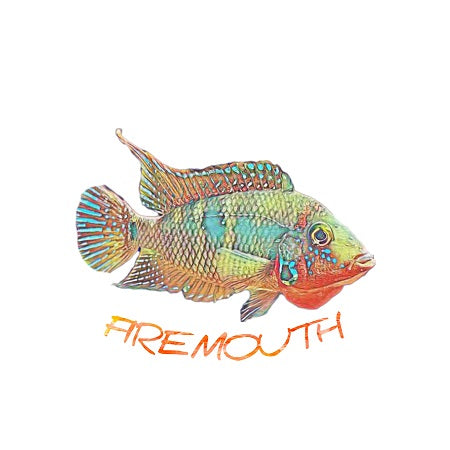Parosphromenus Deissnerri | freshwater fish
Parosphromenus Deissnerri | freshwater fish
Couldn't load pickup availability
General shipping information
General shipping information
SHIPPING :
Orders are generally shipped within 24/48 business hours with a shipping agency.
*Orders DO NOT go out on Fridays to avoid them being stuck all weekend at the transport agency.
You can check the status of your order by sending us an email to firemouthaquaristic@gmail.com
Shipping price:
SPAIN PENINSULA:
- NACEX 24/48H - €5.95 | FREE ON ORDERS + €60
- NACEX SHIPPING LIVE ANIMAL 24H €15 | FREE ON ORDERS +150€
- NACEX HEAVY DELIVERY - €9 | €15 depending on product
- PICKUP FROM WAREHOUSE (ONLY FOR ALICANTE) - €0
ISLANDS, CEUTA AND MELILLA
We use the Correos parcel service with a flat rate of €22
However, write to us and tell us what you are interested in because if it is a smaller package, the costs will be much cheaper.
You only pay the exact Post Office rate
Write to us if you have questions
EUROPE / EUROPE
We use the Correos parcel service with a flat rate of €45
However, write to us and tell us what you are interested in because if it is a smaller package, the costs will be much cheaper.
We use the parcel service of Correos with a flat rate of € 45
However, write us and tell us what you are interested in because if it is a smaller package, the costs are much cheaper.
Fish Shipping Information ONLY
Fish Shipping Information ONLY
**Only valid for Spain PENINSULA
Shipping fish costs €15 (or free from €150.00) and is sent via urgent NACEX , delivering the package before 7pm.
You can also choose to pick it up at the agency first thing in the morning on
day delivery is scheduled, in this case, please write to us once the order has been placed at 664373985.
Once the package arrives you will have one hour to acclimatize and resolve any incidents.
of the animal, if it is not done in this way the right to claim the animals will be lost.
If you want to find a greater variety of fish, you can request to join the WhatsApp offers group where we will share a super large list of fish in which you will find a great variety of fish for very attractive prices.
Commonly known as: Licorice Gourami
INFORMATION:
Classification:
Order: Perciformes
Family: Osphronemidae
Origin:
Endemic to Bangka Island in Bangka-Belitung Province, Indonesia. It is known from several localities, mainly in the northern and eastern parts of the island, within a total range measuring approximately 70 km in diameter.
The original type locality of Bleeker is given as 'Baturussak, Bangka', and the neotypic locality (see 'Notes') is 'Sungai Baturussa Basin, 8 kilometers from Pudingbesar on the road to Kampong Simpan, Bangka, Indonesia'
Its form is:
Females are much less colorful and lack the colorful blue and red bands on the dorsal, anal and caudal fins. Both sexes are also capable of rapidly changing color depending on mood and becoming significantly darker when aggressive, for example.
Its size is:
35 – 40mm.
Parameters required:
Temperature between 22 and 28ºC
PH between 3.0 and 6.5
Aquarium size:
An aquarium with base dimensions of 40 * 20 cm or equivalent is sufficient for a couple.
Feeding:
In the aquarium, live or canned foods such as Artemia and Cyclops should be offered regularly.
Dry feeding type: Immunpro MINI Nature
Behavior:
Not recommended for the general community aquarium. Its care requirements, disposition and especially conservation status dictate that it should be kept alone or together with a group of small, peaceful cyprinids such as Boraras or Sundadanio spp.
Likewise, different Parosphromenus spp. They should not be kept together as females can be difficult to differentiate, and some are undoubtedly capable of hybridizing.
If desired, a mixed group can be kept, although most breeders prefer to keep sexual pairs, as some fry can survive alongside their parents, but usually not if other adults are present.
Share it with whoever may be interested


